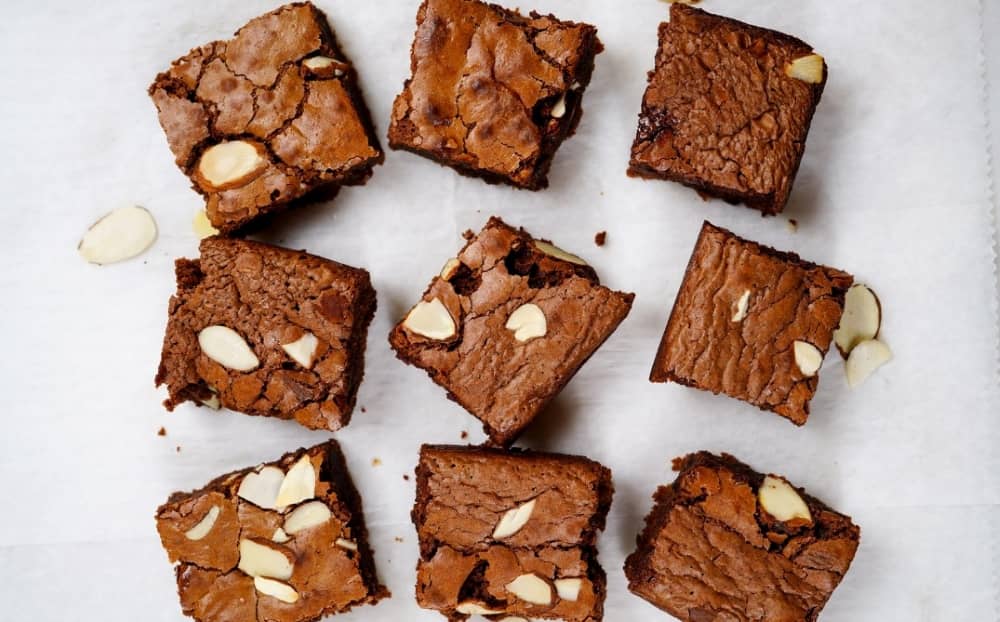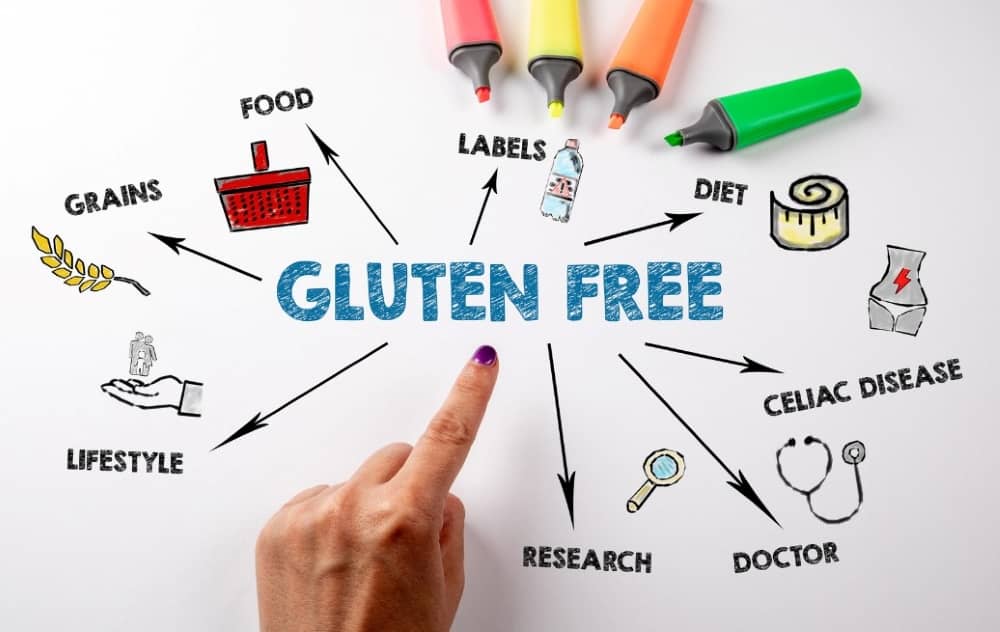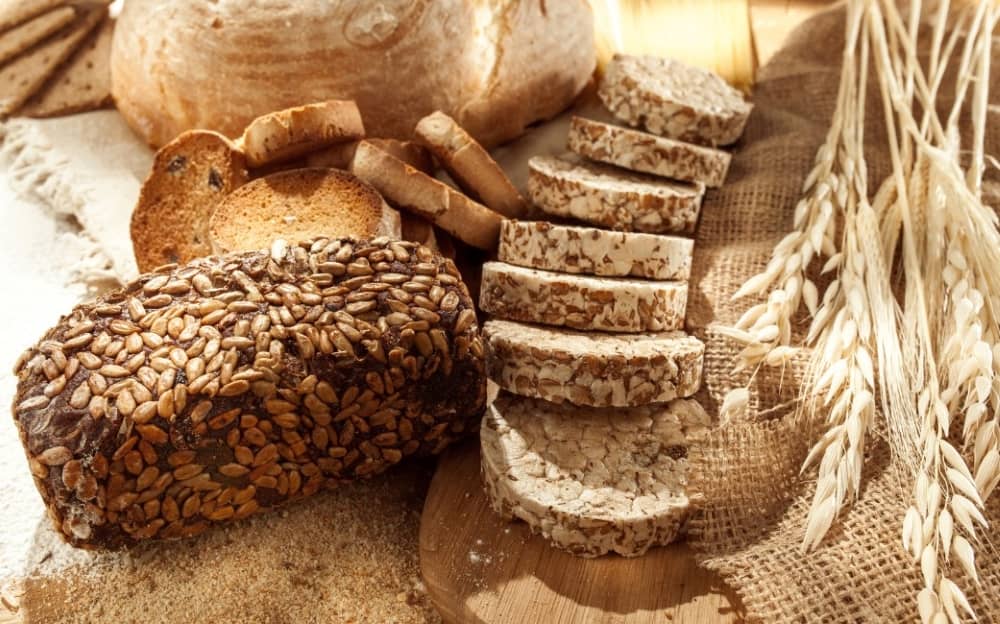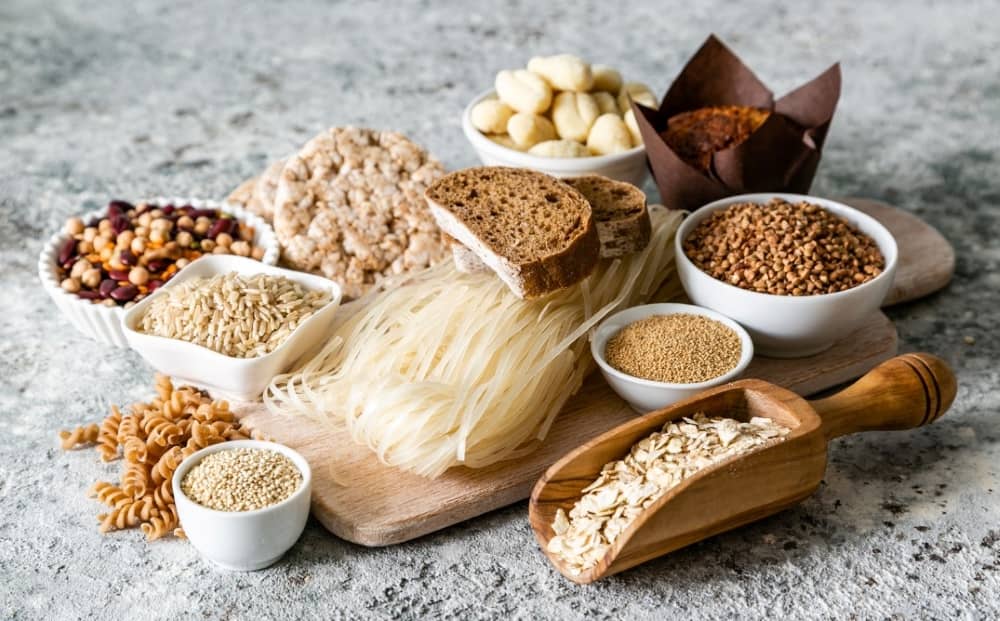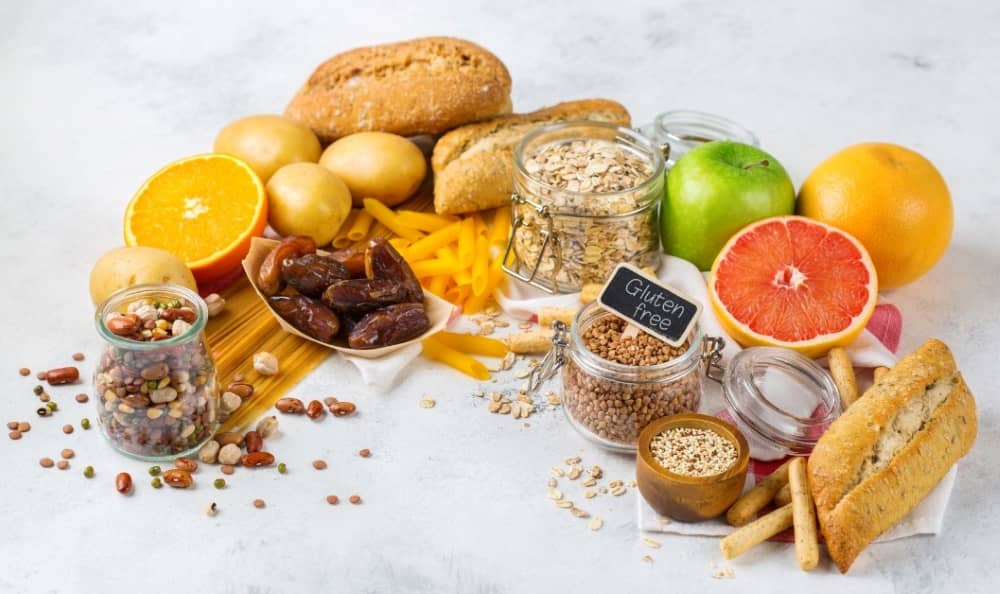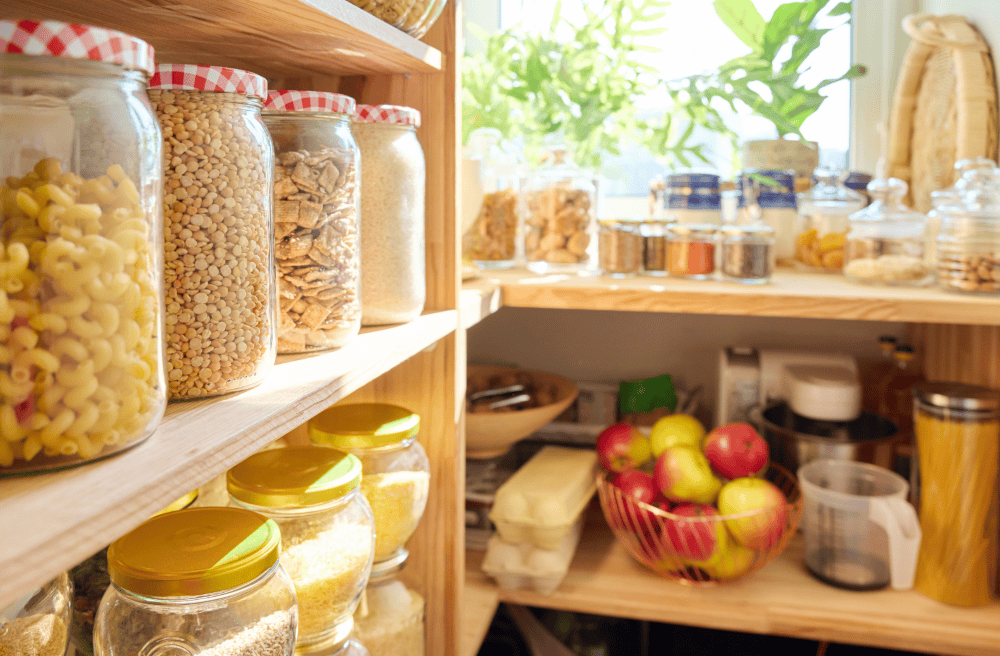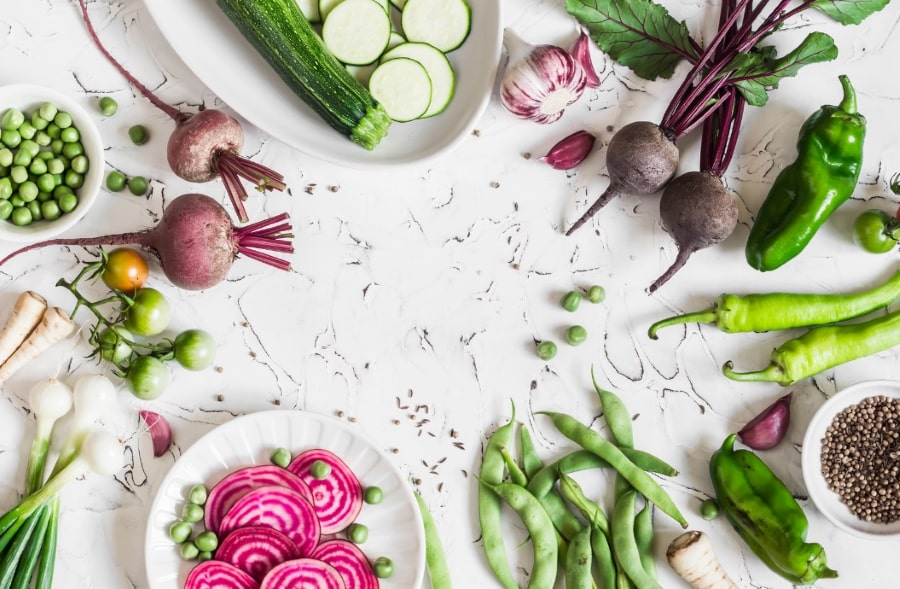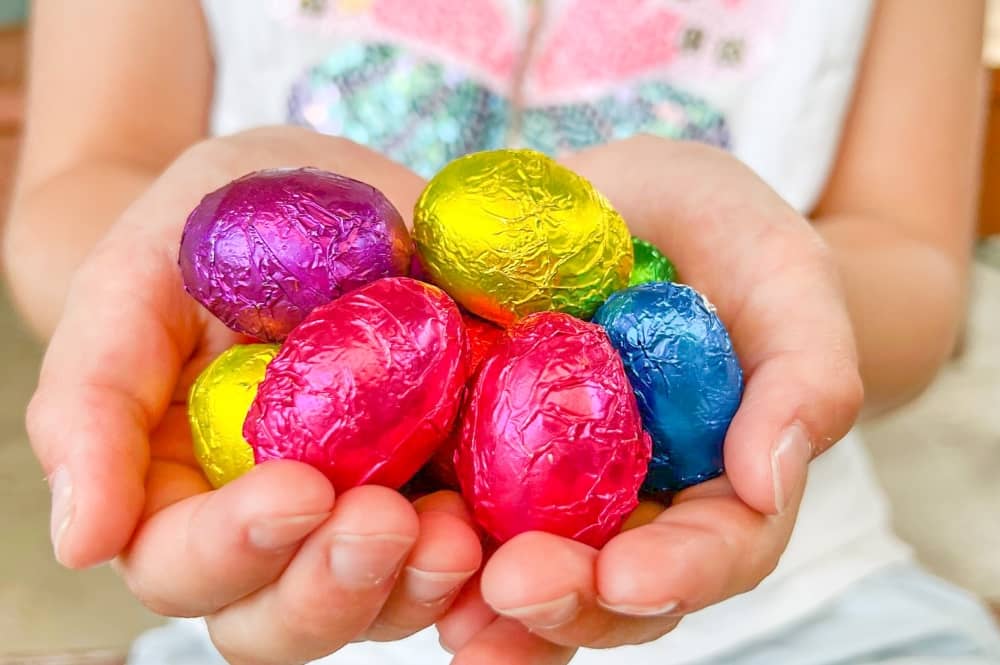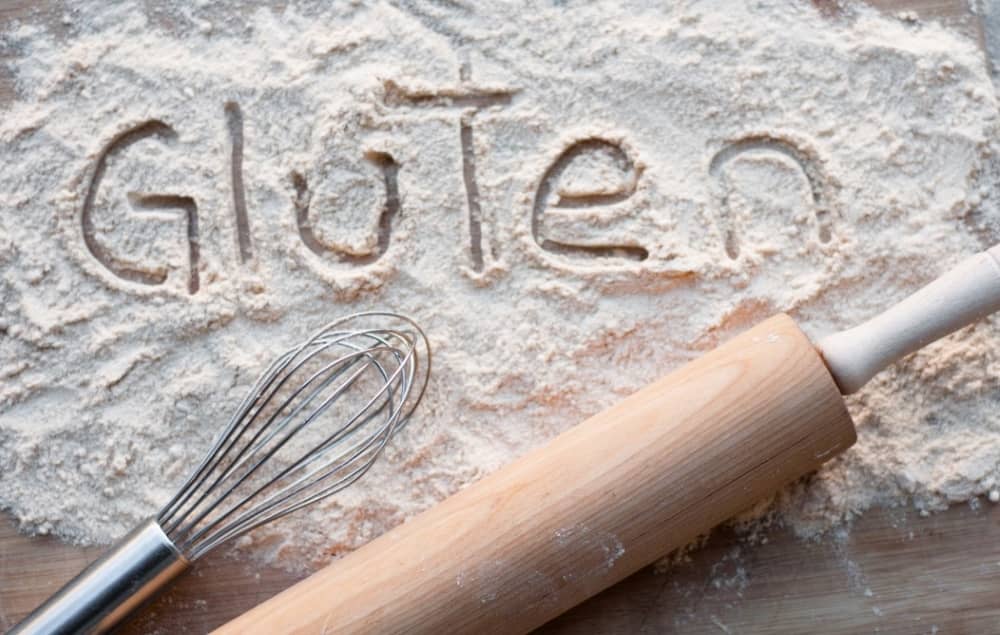

Join our usefulletter and get 10% off your first order + exclusive recipes, offers and BTS
Everything you Knead to Know about Gluten
Have you ever been shopping for groceries and spotted a processed, sugary box of cereal with a label declaring “GLUTEN-FREE!” on it? Many of us, we’ve been conditioned to think that any food labelled “gluten-free” is automatically healthy.
Here, we’ll cover what gluten is, if gluten is bad for you, naturally gluten-free foods, and the importance of reading labels closely.
What Is Gluten?
Gluten is a type of protein found in barley, rye, wheat, and other grains. It allows the bread to rise and gives a chewy, elastic texture to foods.
Is Gluten Bad for You?
For most people, consuming rye, barley, and whole wheat can provide the body with various nutrients, vitamins, fibre, and minerals. Gluten may also act as a prebiotic in the gut, feeding the good bacteria to help them flourish. Excessive negative attention in the media has caused some individuals to be wary of including gluten in their diet.
When Gluten Is Actually Bad for You
Although gluten isn’t a problem for most people, some individuals may not tolerate gluten well.
Coeliac disease is a condition where the immune system reacts to gluten as a toxin and damages the small intestines. This can impair the body’s ability to absorb nutrients and cause digestive discomfort, fatigue, and rashes. However, the coeliac disease may not be as common as you think as the Coeliac disease affects 1 out of 100 Australians.
People who have gluten sensitivity may suffer from digestive discomfort such as bloating or diarrhea after consuming gluten. Talk with your doctor if you have concerns about gluten in your diet.
What Is a Gluten-Free Diet?
Think going gluten-free just means cutting out bread and pasta? Not quite. There are many surprising places gluten can be found, ranging from seasoned potato chips to certain medications.
Along with being found in the majority of grains, bread, and pasta, gluten can also be found in:
- Licorice
- Caramels
- Barbecue sauces
- Soy sauces
- Salad dressings
- Baked goods
- Crackers
- Cereals
- Gravy
- Beer
- Plant-based meats
- Canned or boxed soups
Are Gluten-Free Foods Healthy?
Many people see food with a “gluten-free” label and are tempted to believe the food is healthy. However, some “gluten-free” products are filled with added sugar, preservatives, additives, and excessive sodium.
Even if something is labelled gluten-free, it can still be refined, processed food. Always read ingredient labels closely and try to prioritise foods that are naturally wholesome, nutrient-dense, and free of artificial flavours and refined sweeteners.
Naturally Gluten-Free Whole Grains
If you are interested in adding more naturally gluten-free foods to your diet, here are 9 naturally gluten-free whole grains:
- Sorghum
- Oats (many commercial oats may be cross-contaminated with wheat products, so seek out oats specifically labelled ‘gluten free’)
- Quinoa
- Amaranth
- Buckwheat
- Corn
- Teff
- Brown rice
- Millet
Naturally Gluten-Free foods
If you want to add naturally gluten-free alternatives to your diet, here are some gluten-free foods and great swaps:
- Fresh or frozen fruit blended with coconut yoghurt or cream for dessert
- Corn tortillas instead of flour tortillas
- Zucchini noodles, other veggie noodles (eggplant, squash, carrots) or legume pasta in place of traditional pasta
- Cereals made from buckwheat, quinoa, rice or corn
- Raw veggies with dips instead of crackers or pretzels
- Gravies that use cornstarch as a thickening agent rather than flour
- Air-popped popcorn as an easy gluten-free snack
- Coconut aminos or gluten-free tamari instead of traditional soy sauce
- Almond meal instead of breadcrumbs
- Fruits, vegetables, plant-based milk and yoghurt, legumes, nuts
The Importance of Reading Labels Closely
Regardless of the type of diet you follow, it is important to pay attention to ingredient labels. If you have Coeliac disease or want to become more aware of product labels and ingredients, here’s what to watch for:
- Look for the words “gluten-free” on the label
- Pay attention to how much-refined sugar a food contains
- Check the amount of sodium in a food
- Look for additives or preservatives
- Avoid “partially hydrogenated oils” (trans fats)
Gluten-Free Ingredients You Don’t Need to Avoid
The following ingredients are *generally* considered safe for consumption on gluten-free diets (always double-check if a product is gluten-free to be sure):
- Caramel colour
- Glucose syrup
- Maltose
- Dextrose
- Distilled vinegar
- Food starch or modified food starch (unless it states it contains wheat)
If you have coeliac disease or gluten sensitivity, you’ll want to avoid these ingredients (unless the product is specifically labelled gluten-free):
- Yeast extract
- Natural flavours
- Rice syrup
- Wheat
- Wheat starch
- Barley
- Rye
- Malt
- Malt extract
- Malt vinegar
- Brewer’s yeast
- Maltodextrin
Gluten FAQs and Myths
Q: How can I avoid gluten?
A: It can be tough to avoid gluten, especially if you eat out a lot or consume pre-packaged foods. If you have Coeliac disease, you need to be especially careful to read ingredient labels closely, ask questions, and contact the manufacturer when in doubt. Opt for naturally gluten-free foods, make your gluten-free desserts and snacks, and find natural gluten-free swaps for your favourite foods and snacks.
Q: Do food labels list gluten?
A: Gluten is not listed on the Nutrition Facts or in the ingredients. It is the consumer’s responsibility to know which ingredients may contain gluten. However, some fillers or additives may contain gluten, making it difficult to know for sure if a food is gluten-free. For instance, “modified starch” may come from a gluten-source, unless otherwise specified. When in doubt, contact the manufacturer.
Q: Are there certain words I should look for on labels that signify gluten?
A: In addition to wheat, rye and barley, you should check the ingredient list for malt, maltodextrin, and modified food starch – when in doubt, check with the manufacturer.
Q: Are Xanthan Gum and Guar Gum Okay for Gluten Free Diets?
A: Both xanthan gum and guar gum are commonly used in gluten-free cooking to mimic the texture properties of gluten in baking. An increasing number of gluten-free recipes are utilising these ingredients.
Q: Do I need to watch out for natural flavours if I am gluten-free?
A: Most natural flavours are gluten-free, but always use caution if you have Coeliac Disease. A product containing natural flavours that are not labelled gluten-free may be contaminated with gluten and should be avoided.
Q: Is nutritional yeast gluten-free?
A: Yes, nutritional yeast is gluten-free. Baking yeast is gluten-free as well. Brewer’s yeast is the only type of yeast to watch out for as it could be sourced from beer.
Q: How do I know if I have celiac disease or gluten sensitivity?
A: The best way to know if you have coeliac disease or gluten sensitivity is to see your doctor discuss your symptoms and concerns.
For a comprehensive list of Frequently Asked Questions about Gluten, here is an extremely helpful resource.
The Best Gluten-Free Desserts and Baked Goods
Whether you are avoiding gluten due to Coeliac disease or for personal health reasons, we still believe you should enjoy tasty, indulgent desserts. Our desserts are all naturally gluten-free, vegan-friendly, and downright delicious.
We offer Perth’s tastiest selection of award-winning cakes, baked goods, and bliss balls that are vegan, refined sugar-free, and gluten-free so everyone can enjoy healthy desserts. Browse our selection of healthy desserts or check out our growing collection of gluten-free, vegan recipes.
